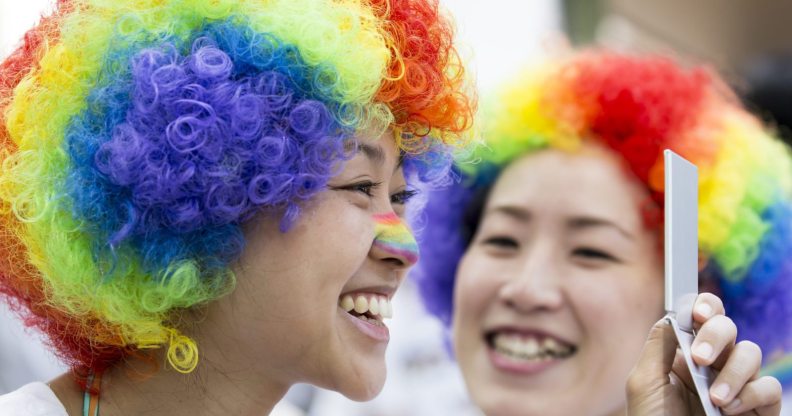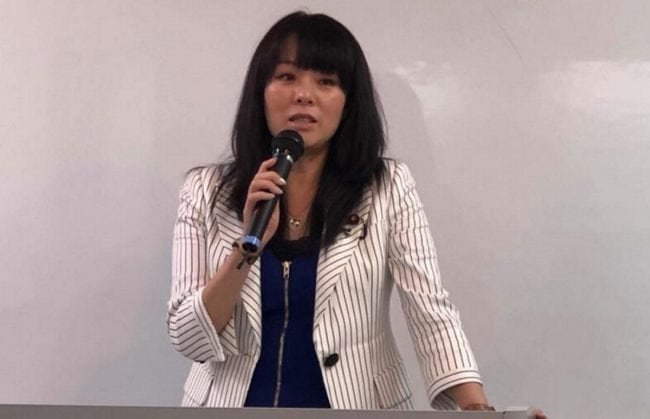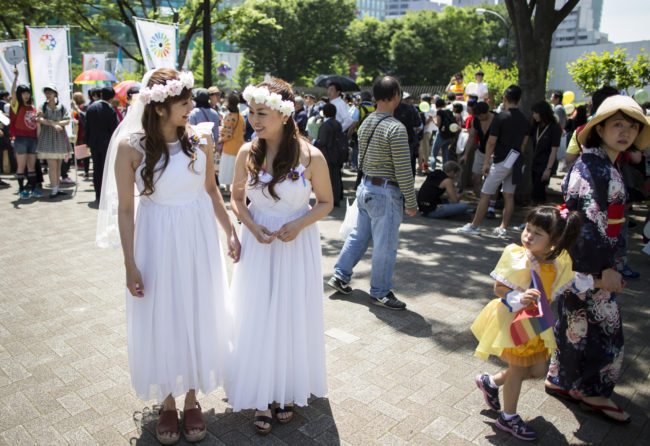Tokyo bans LGBT discrimination ahead of 2020 Olympics

A couple takes part in the Tokyo Rainbow Pride Parade in Tokyo, Japan (Tomohiro Ohsumi/Getty Images)
Tokyo has adopted an anti-discrimination ordinance to help protect the LGBT community.
The move, aimed at tackling hate speech ahead of the 2020 Olympic Games, was approved by the Tokyo Metropolitan Assembly and will come into effect in April.
As part of the ordinance, Tokyo will regulate the use of public spaces, such as city parks, to prevent anti-LGBT groups from promoting discriminatory rhetoric.
It will also improve access for same-sex couples in situations such as hospital visits.
Earlier this year, a Japanese MP sparked a backlash after writing that same-sex relationships will lead people to marry their pets and eventually destroy society.
Mio Sugita, a lawmaker for the ruling Liberal Democratic Party who sits in the House of Representatives, made the comments in an article called: “The level of support for ‘LGBT’ is too high.”

Sugita is in her second term (Mio Sugita/Facebook)
Japan is relatively accepting of LGBT people compared to other Asian countries, with eight cities and city wards including Fukuoka and Sapporo having legally recognised same-sex unions.
Authorities have also started to introduce genderless uniforms into schools across the country, but this gradual progress has attracted criticism from Sugita, who asked: “Why can’t we just stick to two sexes – male and female?”
She also argued against gay people benefiting from public spending, according to The Japan Times.
The 51-year-old politician, who is in her second term, said the government shouldn’t use taxpayers’ money to support same-sex couples because “these men and women don’t bear children — in other words, they are ‘unproductive’.”

A couple in wedding attire take part in the Tokyo Rainbow Pride Parade in Tokyo (Tomohiro Ohsumi/Getty Images)
Sugita also warned that giving even broader legal recognition to gay partners would lead to people engaging in bestiality and incest.
“If we recognise different sexual interests, then it will lead to calls for allowing marriage between siblings, marriages between parents and children, or even marriages to pets or machinery,” she wrote, according to The Mainichi.
The country is taking steps to improve LGBT rights, however.
Since April, same-sex couples living in Fukuoka, a Japanese city of 1.5 million people have been able to have their partnerships recognised by law, after the local government began officially handing out partnership certificates.
Last year, Sapporo became the first major city in Japan to issue official partnership vow papers to those who wish to enter a legal same-sex union.

